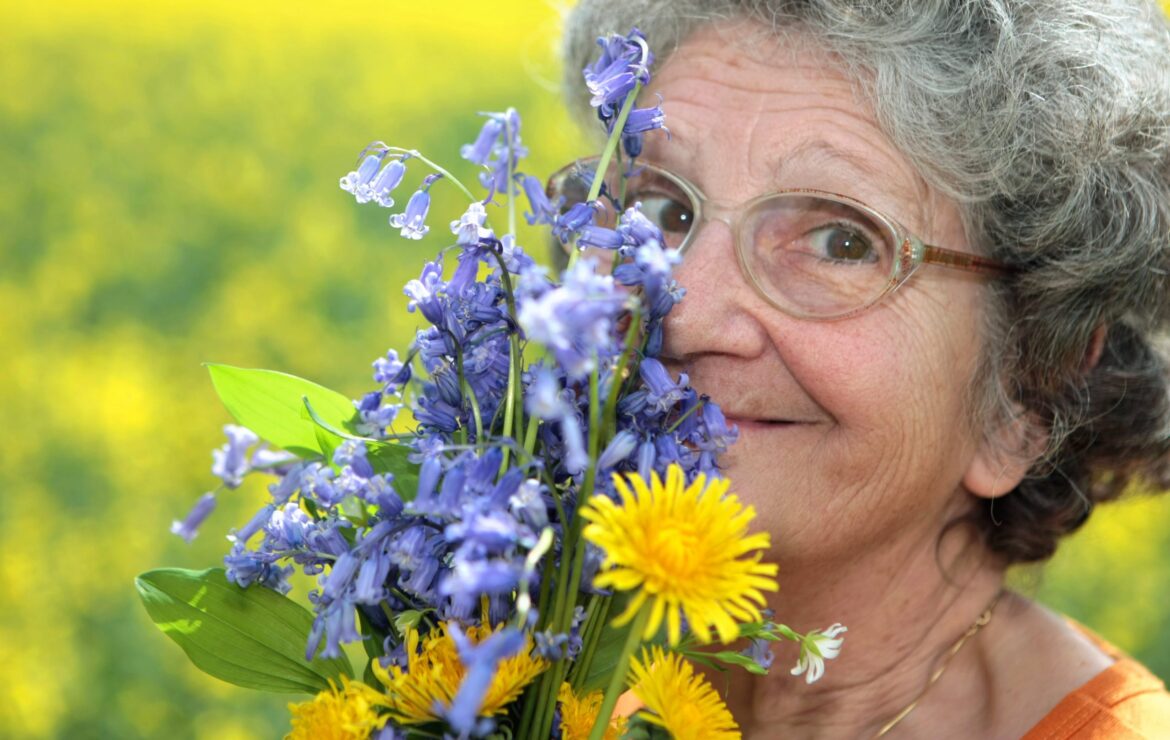What Do You Have to Be Grateful For?

Do you take the time to “stop and smell the flowers” as you rush through the daily demands of a busy life? It is not always easy to be grateful especially when we are going through challenging times. But learning to be grateful for even the smallest things in our lives, living in the present and noticing all that we have to be thankful for, can do wonders for our mental health and our ability to make it through the tough times. It becomes even more important to focus on the positives in our lives as we age, cherished friends, grandchildren, a beautiful day and those flowers that are sprouting as spring approaches. Research has shown that people who have gone through the worst that life can bring, losing a loved one, battling a serious illness or living through a traumatic accident, learn to appreciate the small things in a way they never have before.
Learning to practice grateful living can make us aware of opportunities we have to grow as individuals and to learn to treat others with care and compassion. It reinforces values such as respect, responsibility, and generosity. Learning to appreciate all we have at any given time can help elevate our mood and turn a bad day around. Grateful living can also make a difference to those that are closest to us, improving relationships and helping us forgive and forget rather that focusing on the negatives perceived in the people we care about.
Research shows that even if we have to force ourselves to be grateful it can have positive results. A famous study asked study participants to hold a smile for 20 seconds. Just the physical action of smiling made people feel better even if they weren’t truly happy. Learning to be grateful and practicing gratefulness moment by moment can result in less anxiety, increased feelings of peace and well-being and more joy in our lives. In fact, many studies have linked practicing gratefulness to strengthening the immune system, lowering blood pressure, reduced feelings of loneliness, decreases in aches and pains, improved sleep and increased self-esteem.
So how can you get started? Here are some strategies:
- Write down what or who you are grateful for in your life. Think about it every day and add to your list as you become aware of more things you are grateful for, a beautiful sunset, a compliment you received, a great meal or time spent with an aging parent.
- Say thank you. This can be just thoughts of people who have helped you along the way or a note, text or phone call to acknowledge an act of kindness or assistance provided.
- Meditate or just focus on the present moment and all that you have to be grateful for.
- Review your past with a focus on all the people who have touched your life in some way. The more you think about it, the more people will come to mind.
Another great resource is a website – www.gratefulness.org – founded by a Benedictine Brother, David Steindl-Rast. He writes about how he learned to be grateful while growing up during WWII in Germany. The website offers lots of tools and resources for gratefulness as well as the opportunity to interact with others. Check it out and remember today is the day to be grateful!
“Grateful living is a way of life which asks us to notice all that is already present and abundant—from the tiniest things of beauty to the grandest of our blessings—and in so doing, to take nothing for granted. . . . Small, grateful acts every day can uplift us, make a difference for others, and help change the world”






